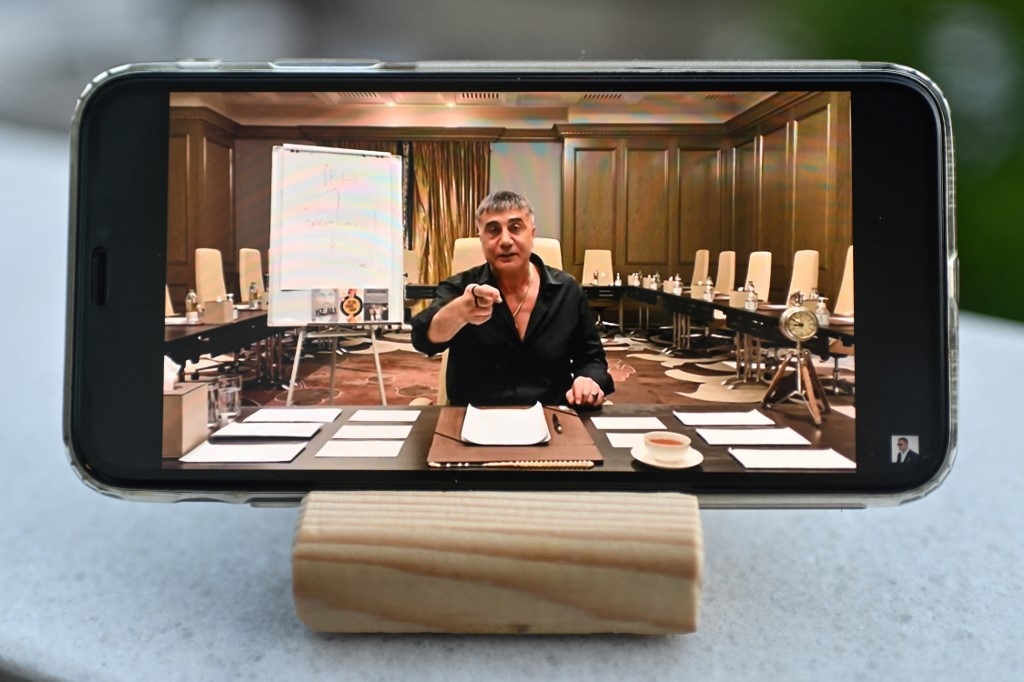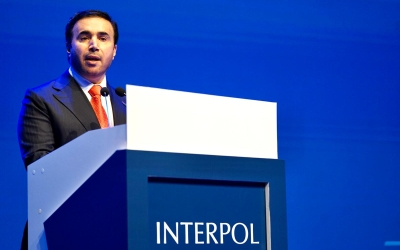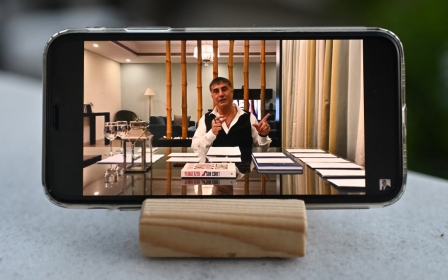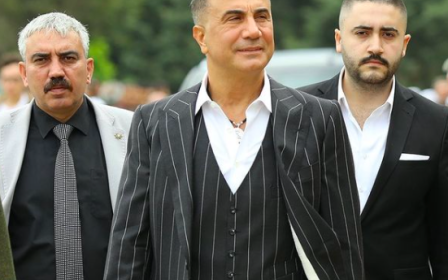Turkey: Interpol issues arrest warrant for Dubai-based mobster Sedat Peker

The Turkish justice ministry asked Emirati authorities to temporarily arrest Turkish mobster Sedat Peker following an Interpol decision to issue a red notice on him, Turkish news agency Anadolu reported on Wednesday.
Interpol issued the red notice on 1 February following multiple court decisions in Turkey against Peker over organised crime charges, the news agency said.
Turkey's Ministry of Justice reminded the United Arab Emirates that Ankara had already filed extradition requests last year against Peker, and on Wednesday renewed its demand for his temporary apprehension and extradition following the issuance of the red notice.
Dubai-based Peker captivated tens of millions of people in Turkey last year by broadcasting on YouTube a slew of corruption allegations against top officials - including Interior Minister Suleyman Soylu and businessmen close to the government. Soylu denied the allegations.
Turkey's interior ministry, in a separate application, contacted the UAE Interpol National Central Bureau to demand Peker’s arrest last year, but Emirati authorities requested an international arrest order from Interpol.
New MEE newsletter: Jerusalem Dispatch
Sign up to get the latest insights and analysis on Israel-Palestine, alongside Turkey Unpacked and other MEE newsletters
Soylu then accused Interpol of suppressing Turkish demands for a red notice, claiming that the Turkish government had political motivations for the arrest request.
As Turkish-Emirati relations improved last summer, Peker’s YouTube channel went silent. Peker publicly said the Emirati officials asked him to stop appearing on videos for his own safety.
Interpol’s reported decision to issue a red notice for Peker came after Ahmed Naser al-Raisi, an Emirati general accused of torture, was elected as president of Interpol last November.
Middle East Eye asked Interpol to confirm whether it issued a red notice for Peker since Interpol's website doesn't list Peker's name among the wanted persons.
The two countries began to restore relations over the past year, after 10 years of political and proxy conflicts in places such as Libya, Egypt and the horn of Africa, and accusations that the Emiratis were plotting to take down the Turkish government.
Abu Dhabi Crown Prince Sheikh Mohammed bin Zayed Al Nahyan’s landmark visit to Ankara last November officially normalised relations, when Abu Dhabi declared it would invest $10bn in Turkey in the coming years amid a currency crisis in the country.
Both countries also declared earlier this month that they would begin free trade deal negotiations, potentially carrying the recently improved bilateral relations to a new economic level.
Middle East Eye delivers independent and unrivalled coverage and analysis of the Middle East, North Africa and beyond. To learn more about republishing this content and the associated fees, please fill out this form. More about MEE can be found here.





